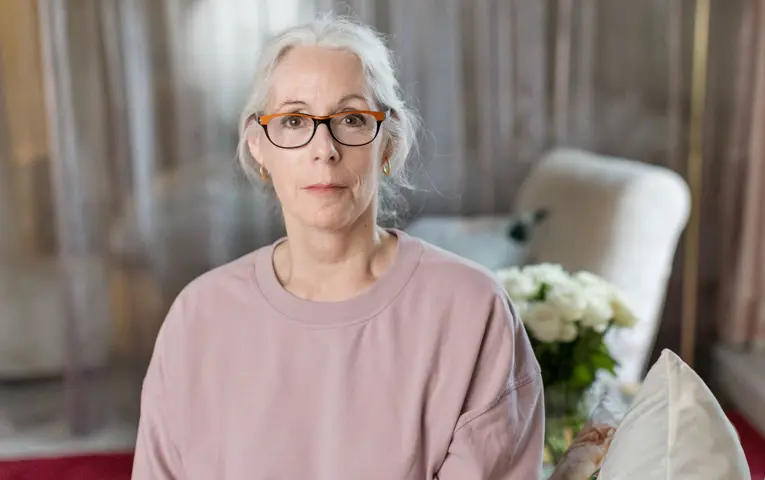 Photo: Susanne Kronholm
Photo: Susanne Kronholm"Writing helps me make sense of the world"
Where does Laurie Halse Anderson get her inspiration? When did she know that she wanted to be a writer, and what was she like as a teenager? Read our interview with this year's laureate!
What were you doing when you received the phone call from the jury?
– I was revising chapter 14 of my new book. I saw that the call was coming from Sweden and I was going to ignore it, because I don’t know anybody who lives there. When I finally answered, I was really confused and thought that someone was playing a joke on me.
Why do you write?
– Even if I had never published a book, or ever worked as a journalist, I would still be writing. I find the world to be a very confusing place and writing helps me make sense of it. Putting things into words on paper is how I see the world more clearly.
Where do you get your inspiration?
– A lot of my books started because I was angry about something, like injustice faced by teenagers. When I’m writing about American history, I’m writing about things that I think we should all know about. Here in the United States, we’re just now beginning to be honest about our history, which is very bloody and filled with injustice. I write from anger, I write from curiosity, and I write from confusion.
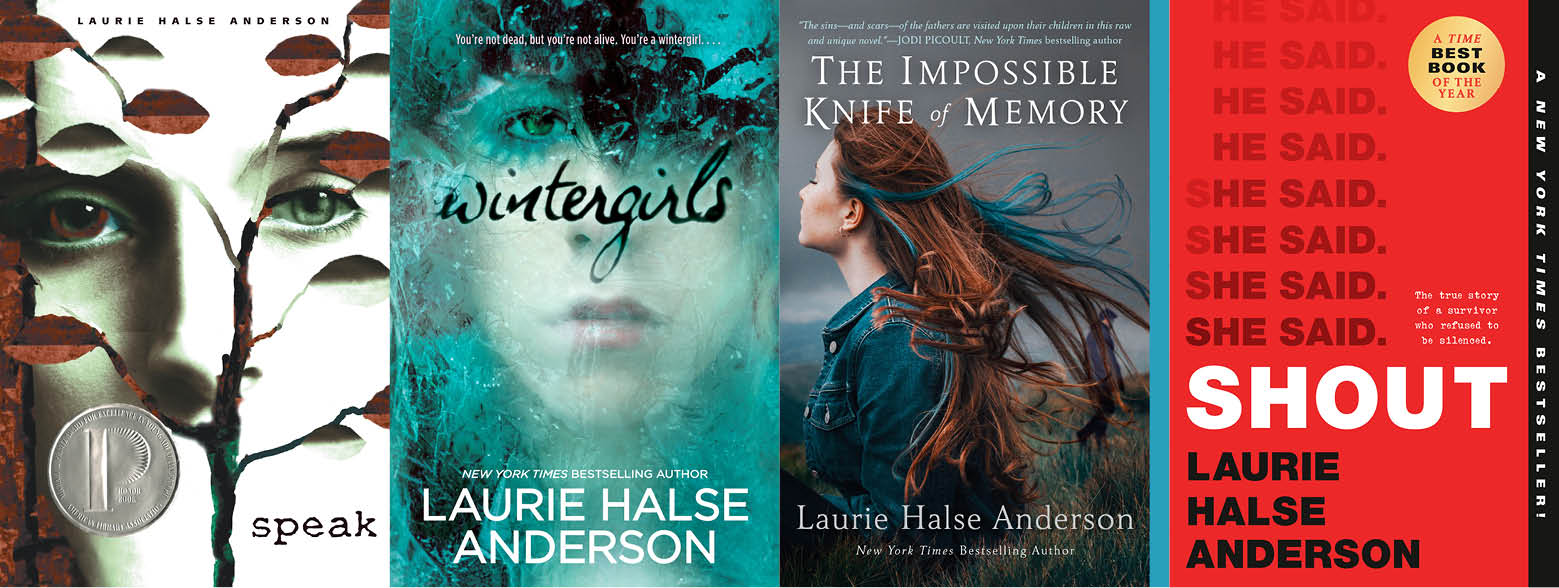
Speak (Farrar, Straus and Giroux, 1999), Wintergirls (Viking, 2009), The Impossible Knife of Memory (Viking, 2014), Shout (Viking, 2019).
Do you remember your first important reading experience?
– I was sitting on my mother’s lap in my pajamas and I had just had a bath. We had a favorite book about a family of ducks who lived in Boston, and my mom was very good at making voices and making the story come alive. The first time I fell in love with a story that I read myself was with Laura Ingalls Wilder’s Little House on the Prairie. She just brought the whole world alive for me. I had a hard time learning how to read when I was a little girl, it took me longer than it took my classmates, and I didn’t like books because they made me feel dumb. But my teachers were patient and I got extra help, so by the time I was ten years old I was really a reader.
I write from anger, I write from curiosity, and I write from confusion.
When did you know that you wanted to become a writer?
– I never thought I would be a writer. I didn’t like English class when I was in high school; the books we had to read were pretty boring and I got so frustrated when the teachers made us analyze them and talk about things like symbolism. It was not until I had children, and my daughters were sitting on my lap and I was reading to them, that I thought I should try writing myself. It took me a while to learn how to write properly though. I had plenty of ideas, but the first stories I wrote were all terrible.
You have been writing in several different genres and for different age groups. Why is that?
– I have a very short attention span. I get bored so easily and I really don’t like being bored. So going back and forth between different types of books is the only way that’s pleasant for me.
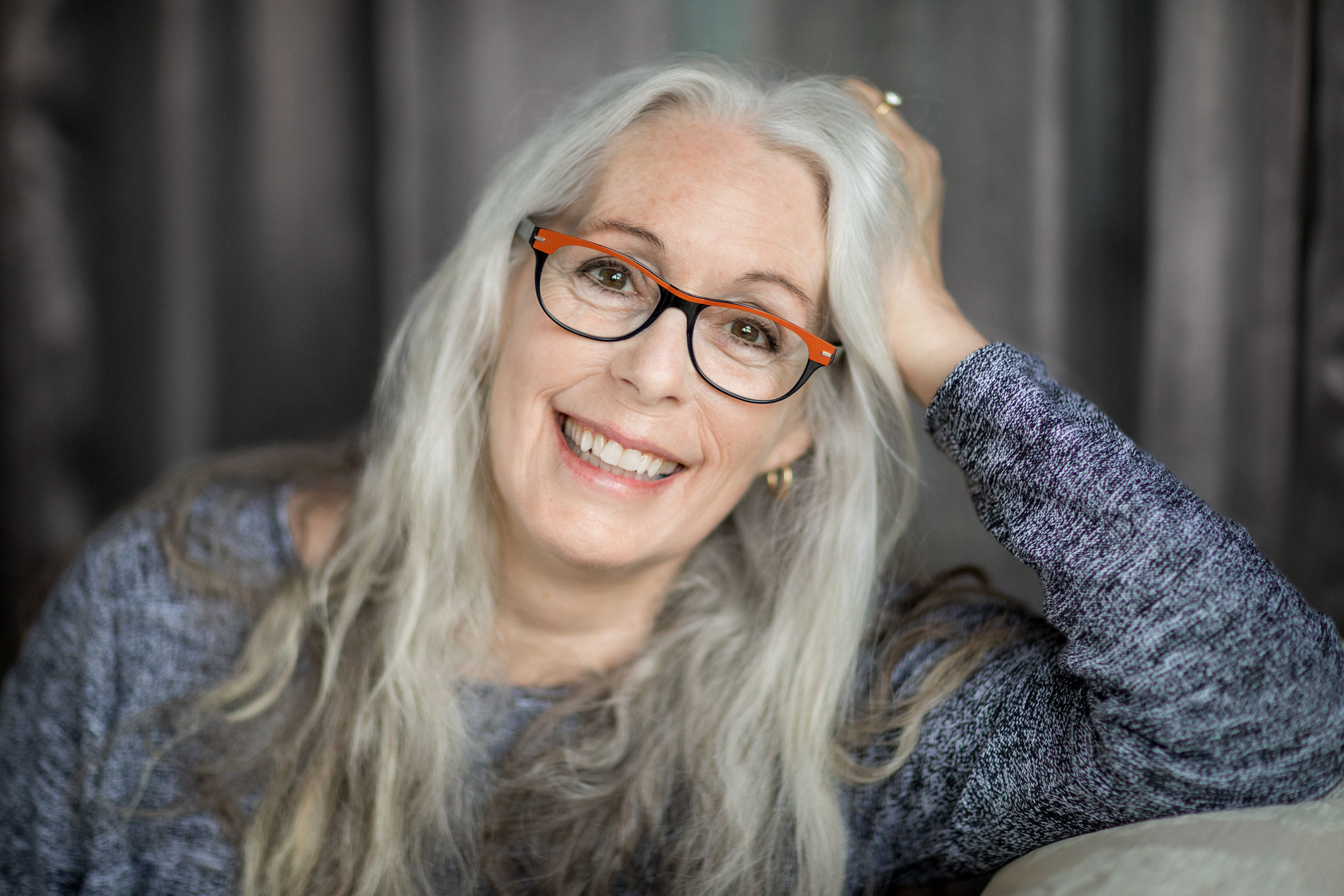
Photo: Susanne Kronholm
In the jury’s motivation, they say that you “never shy from even the hardest things.” Is there a reason why you write about topics such as pain, anxiety and sexual abuse?
– My childhood was wonderful, and my parents were so lovely. But I have first-hand experiences of how hard it can be when children are hurt, and they don’t know how to talk about what’s hurting them. My father was a war veteran and turned to alcohol to help cope with his bad memories. He lost his job and we had to move several times. In the middle of all that, when I was 13, I was raped and I didn’t tell anybody about it.
– Many of my books are banned in the US and the reason is because some people feel that children shouldn’t read about these hard things. But to try to protect children from the reality of the world makes them vulnerable. As adults, I wish we could take our responsibility to be honest with children.
What were you like as a teenager?
– I was pretty angry. I was raped just before I started high school, my family had just moved and I didn’t have any friends in the neighborhood. So, the first year of high school was a mess and I was in a really dark place. But then I joined some sports teams. I began to make friends and the coaches were great influences on me. I started to pay attention in class, I became happier and healthier. My final year of high school I was an exchange student in Denmark and that was an extraordinary experience. My host family were the most welcoming and kind people I have ever met. I felt safe, for the first time in years.
As a writer describing young people’s lives, do you keep yourself updated somehow with the language and culture of today’s teens? Do you think you need to?
– It’s important to recognize what changes and what doesn’t from generation to generation. I don’t worry too much about the language, about slang and jargon, because I could hear something a teenager says today, write it in a book, and by the time that book is published, the language could have changed again. I try to listen, to pay attention to what’s important for whatever audience I’m writing for – but what’s more important is to be respectful of the challenges they’re facing and tell a story with characters they will identify with.
To try to protect children from the reality of the world makes them vulnerable.
What does the Astrid Lindgren Memorial Award mean to you?
– It means that my work has been recognized and lifted to a height that I could never have imagined. Astrid Lindgren herself is a superhero of children’s literature, both in terms of the joy she’s brought to children around the world with her stories, but also how she used her visibility to advocate for children around the world. To be honored with a memorial in her name is the greatest honor I’ve had, and will ever have. There’s nothing beyond this.
Tell me about your creative process! Do you have the whole story figured out before you start, or do you just sit down with a blank sheet of paper and start writing?
– It depends. When I’m writing teenager books that are set in the world of today, I do a little bit of research, but not too much. Usually, I identify something that teenagers are struggling with and begin to think about my characters. When I can hear the voices of the characters, I do a very rough draft with scenes and dialogues. After a couple hundred pages, it’s all a terrible, terrible mess. But it gives me something that I can work on and from there I start to figure out the plot.
– My historical fiction is very different. I will spend a couple of years researching the time, place and historical events that my characters will experience. Then I figure out who my characters are and how these historical events affect their lives, and after that I write a detailed plot outline.
The yearning for love and belonging is a recurring theme in your books. How come?
– I think that every child and every teenager feels that in their hearts, that it’s a human need. If you’re writing about kids or teenagers, and you want to reflect real experience, you have to write about the need and hunger for love and belonging.
Your YA novels are all narrated in the first person. Why did you choose this narrative style?
– There’s an immediacy, a certain power, in a first-person narrative, and as a teenager I think it’s much easier to understand another person’s experiences if the story is told from that person’s perspective.
You also write historical fiction. Where does your interest in history come from?
– I think it’s because my father was such a good storyteller. Parts of his family were Irish and hearing his family stories, and understanding how they tied into American history, was really interesting to me. I also love gossip, I’m a very nosy person, so finding out about what was going on in people’s lives back in the day is a lot of fun. And I think storytelling is a much more effective way of telling history than making children memorize dates of battles.
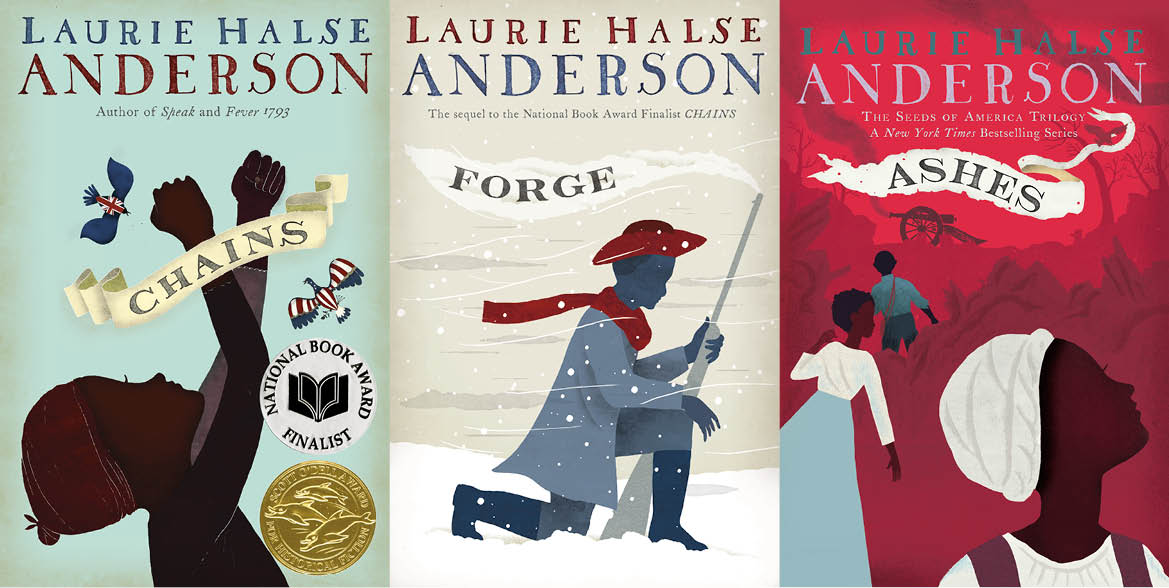
Seeds of America Trilogy: Chains, Forge, Ashes (Atheneum, 2008-2016).
What do you do if you get writer’s block?
– Writer’s block is always a sign that I need to exercise. That it’s time to go for a walk or a run, or to ride my bike. If I move my body, my mind starts to flow again!
Why is literature for children and young people important?
– Because children are more important than adults! I believe that every generation tries to make it better for the generation that follows and to prepare our children for the world that they will inherit. Giving them the best stories is a way of doing that.
What do you like to read yourself?
– I read a lot of Scandinavian noir mysteries. Especially by Danish authors, since I love Denmark and miss living there. The murders are scary of course, but a good author creates characters that you want to be friends with, and the books give you a little glimpse into what it’s like to live in a certain place. It’s a great way to travel in your imagination, and much cheaper – especially if you borrow the books from the library!
Lastly, do you have a favorite Astrid Lindgren character?
– Pippi. Why? Because I want to be Pippi when I grow up!
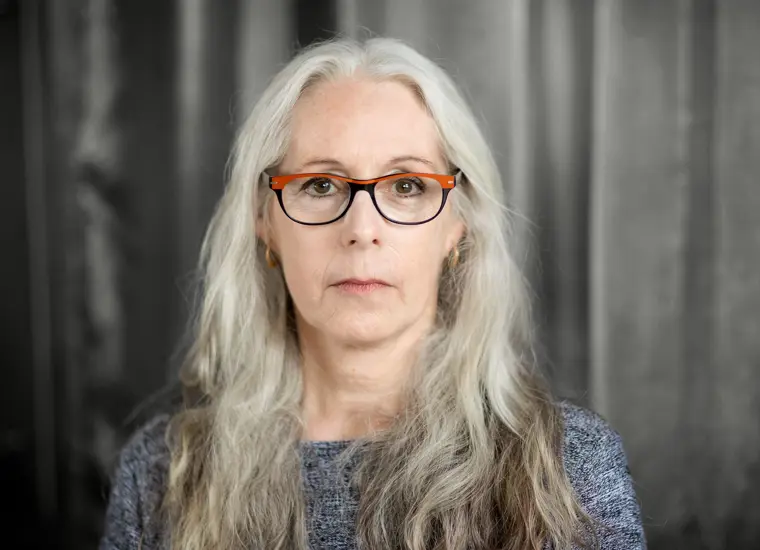
A darkly radiant realism
Laurie Halse Anderson is one of America’s foremost writers for young adults. Her breakthrough novel, Speak, was published in 1999 and has been translated into many languages and adapted for film. In her richly expressive novels for young people she gives voice to the adolescent experience with sometimes brutal honesty. The yearning for love and belonging is a recurring theme for Anderson.
Discover Laurie Halse Anderson